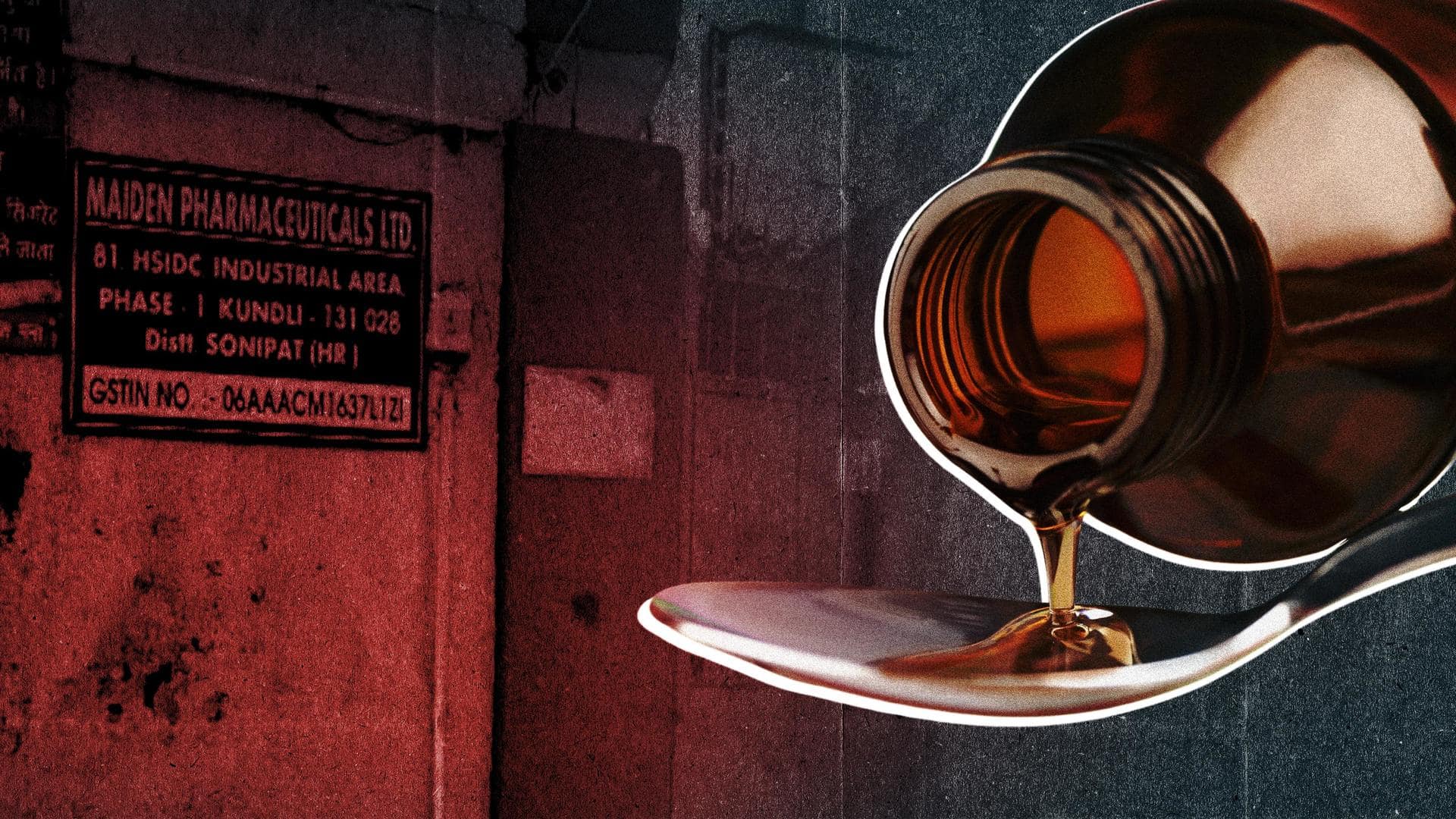
Gambia: CDC links child deaths to Indian-made syrup
What's the story
The United States's (US) leading public health agency, the Centers for Disease Control and Prevention (CDC), on Friday said that they found strong evidence to suggest that child deaths that took place in Gambia are linked to the consumption of Indian-made cough syrups. It claimed that India-based Maiden Pharmaceuticals Ltd might have allegedly substituted pharmaceutical-grade solvents in the syrup with deadly Diethylene Glycol (DEG).
Context
Why does this story matter?
Nearly 70 children, mostly under the age of five, reportedly died in Gambia within days of being administered an Indian-made paracetamol syrup last year. Doctors in the west-African country raised an alarm, and subsequently, an investigation was opened. The Gambian health ministry also issued an advisory in September 2022, a month after the deaths of at least 28 children from kidney failure.
Details
CDC links child deaths in Gambia to Indian-made cough syrup
The CDC report strongly suggests that made-in-India medications contaminated with Diethylene Glycol (DEG) imported into the Gambia led to this Acute Kidney Injury (AKI) cluster among children. "Patients with DEG poisoning can experience symptoms like altered mental status, headache, and gastrointestinal symptoms. However, the most consistent manifestation is AKI, characterized by oliguria (low urine output) or anuria, progressing over 1-3 days to renal failure."
Findings
Syrup entered Gambia taking advantage of lenient regulations: Report
The report said the contaminated syrup linked to AKI-related deaths might have entered the Gambia market by taking advantage of lenient regulations and checks in the low-income country. It further said medications for export might be subject to less rigorous regulatory standards than those for domestic use, and low-resource countries might not have the human and financial resources to monitor and test imported drugs.
Report
Joint probe finds links between syrups and children deaths
The CDC report was prepared after a joint probe by the US agency and the Ministry of Health (MoH) Gambia after the latter approached CDC to assist in an investigation. The aim was to characterize the illness following multiple cases of Acute Kidney Injury (AKI) and deaths in children, describe the epidemiology, and identify potential causal factors and their sources in August last year.
Government
Indian Health Ministry's recent claims in Lok Sabha
On February 3, the Union Minister of State for Health, Bharati Pravin Pawar, in a reply to Lok Sabha said that, after testing, the samples of the cough syrups have been declared to be of standard quality. The samples were found to be negative for both DEG and EG, she said in a written reply.
WHO
WHO urged countries to take immediate action
In January, following a series of child deaths linked to contaminated cough syrups, the World Health Organization (WHO) issued several measures for countries, calling for "immediate and concerted action" to protect children. Notably, over 300 children aged under five died of acute renal damage in Gambia, Uzbekistan, and Indonesia in 2022, and the deaths were traced down to such contaminated medicines.
About
A little more about contamination of Ethylene Glycol, Giethylene Glycol
Ethylene Glycol (EG) and Diethylene Glycol (DEG) are both highly toxic, colorless, and viscous liquids with a sweetish flavor. According to the CDC, both chemicals are often found in glycerin as contaminants and are used as sweeteners in the production of numerous pharmaceutical syrups. Reportedly, DEG and EG have been involved in several mass poisonings dating as far back as 1937.